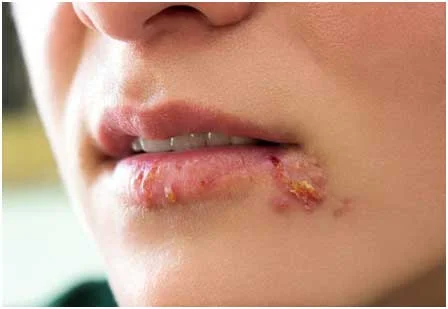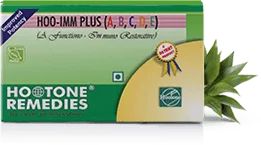Herpes is a common virus that causes sores on your genitals and/or mouth. Herpes can be annoying and painful, but it usually doesn’t lead to serious health problems.
Herpes is a super-common infection that stays in your body for life. More than half of Americans have oral herpes, and about 1 out of 6 Americans has genital herpes. So chances are a few people you know are living with herpes.
Herpes is caused by two different but similar viruses: herpes simplex virus type 1 (HSV-1) and herpes simplex virus type 2 (HSV-2). Both kinds can make sores pop up on and around your vulva, vagina, cervix, anus, penis, scrotum, butt, inner thighs, lips, mouth, throat, and rarely, your eyes. Herpes is spread from skin-to-skin contact with infected areas, often during vaginal sex, oral sex, anal sex, and kissing. Herpes causes outbreaks of itchy, painful blisters or sores that come and go. Many people with herpes don’t notice the sores or mistake them for something else, so they might not know they’re infected. You can spread herpes even when you don’t have any sores or symptoms.
There’s no cure for herpes, but medication can ease your symptoms and lower your chances of giving the virus to other people. And the good news is, outbreaks usually become less frequent over time, and even though herpes can sometimes be uncomfortable and painful, it’s not dangerous. People with herpes have relationships, have sex, and live perfectly healthy lives.

Because there are 2 different kinds of herpes simplex viruses (HSV-1 and HSV-2) that can live on many body parts, lots of people are confused about what to call these infections. But it’s actually pretty simple:
HSV-1 usually causes oral herpes, and HSV-2 usually causes genital herpes — each strain prefers to live on its favorite area. But it’s totally possible for both types of herpes simplex to infect either area. For example, you can get HSV-1 on your genitals if someone with a cold sore on their lips gives you oral sex. And you can get HSV-2 in your mouth if you give oral sex to someone with HSV-2 on their genitals.
Herpes is easily spread from skin-to-skin contact with someone who has the virus. You can get it when your genitals and/or mouth touch their genitals and/or mouth — usually during oral, anal, and vaginal sex.
Herpes can be passed even if the penis or tongue doesn’t go all the way in the vagina, anus, or mouth. You don’t have to cum to spread herpes. All it takes is some quick skin-to-skin touching. You can also get herpes from kissing someone who has oral herpes.
The skin on your genitals, mouth, and eyes can be infected easily. Other areas of skin may get infected if there’s a way for the herpes virus to get in, like through a cut, burn, rash, or other sores. You don’t have to have sex to get herpes. Sometimes herpes can be passed in non-sexual ways, like if a parent with a cold sore gives you a peck on the lips. Most people with oral herpes got it when they were kids. A mother can pass genital herpes to a baby during vaginal childbirth, but that’s pretty rare.
You can spread herpes to other parts of your body if you touch a herpes sore and then touch your mouth, genitals, or eyes without washing your hands first. You can also pass herpes to someone else this way.
Herpes is most contagious when sores are open and wet, because fluid from herpes blisters easily spreads the virus. But herpes can also “shed” and get passed to others when there are no sores and your skin looks totally normal.
Most people get herpes from someone who doesn’t have any sores. It may live in your body for years without causing any symptoms, so it’s really hard to know for sure when and how you got it.
That’s why so many people have herpes — it’s a pretty sneaky infection.
Because the virus dies quickly outside the body, you can’t get herpes from hugging, holding hands, coughing, sneezing, or sitting on toilet seats.
Most people do not experience symptoms for months or years after becoming infected. Those who do have symptoms during the initial period will usually notice them about 4 days after exposure (the average range is 2-12 days).
Many people with HSV have recurring herpes. When a person is first infected, the recurrences tend to happen more frequently. Over time, however, the remission periods get longer, and each occurrence tends to become less severe.
 blisters and ulceration on external genitalia, in the vagina, or on the cervix
blisters and ulceration on external genitalia, in the vagina, or on the cervix vaginal discharge
vaginal discharge pain and itching
pain and itching tender, enlarged lymph nodes
tender, enlarged lymph nodes pain when urinating
pain when urinating high temperature (fever)
high temperature (fever) malaise (feeling unwell)
malaise (feeling unwell) cold sores around the mouth
cold sores around the mouth red blisters on the skin
red blisters on the skinIn most cases, the ulcers will heal, and the individual will not have any lasting scars.
Only six to eight month’s treatment with our Unani Herbal Medicines without any side effect and 100% natural.
The HOO-IMM PLUS (A, B, C, D, E) is an absolutely new, novel, pioneering and revolutionary concept from Unani Herbal to medical science. It is a very safe, efficacious Indian medicine for the relief of AIDS according to the degree & stage of affliction.
View More